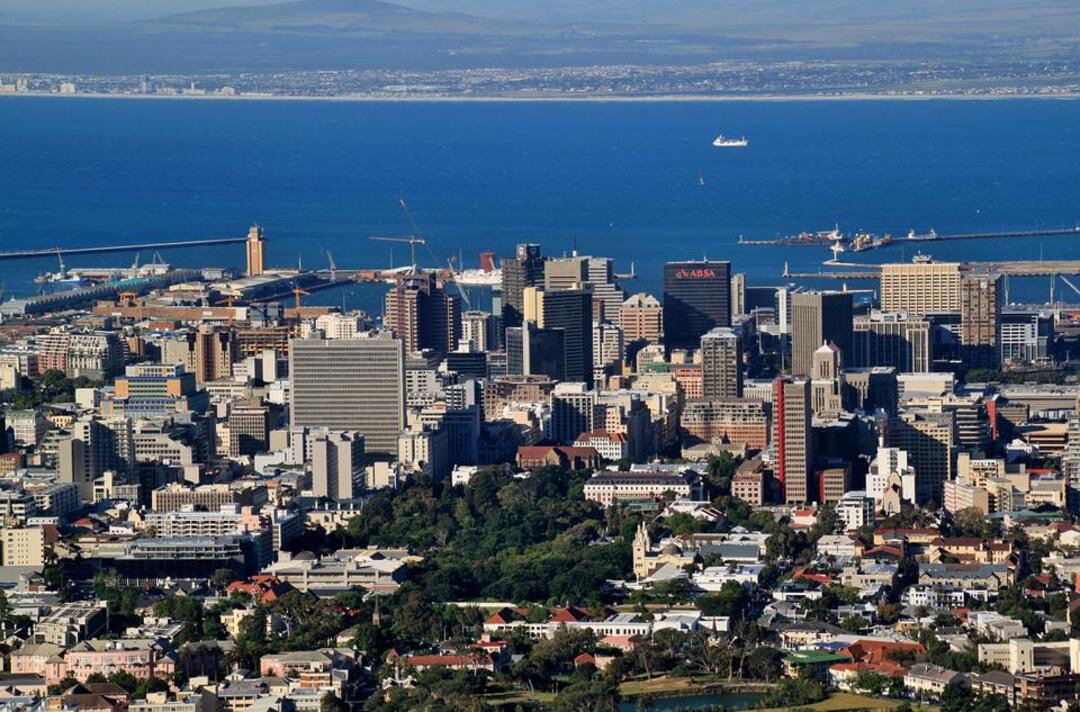-
South Africans struggle in the dark to cope with power cuts

South Africans are struggling in the dark to cope with increased power cuts that have hit households and businesses across the country, the Anews reported, citing the Associated Press.
The rolling power cuts have been experienced for years but this week the country's state-owned power utility Eskom extended them so that some residents and businesses have gone without power for more than 9 hours a day.
According to experts, a strike by Eskom workers added to the utility's woes including breakdowns of its aging coal-fired power plants, insufficient generation capacity and corruption.
The prolonged power cuts are hitting South Africans in the winter months of the Southern Hemisphere when many households rely on electricity for heat, light and cooking.
Small and large businesses have had to close down for prolonged periods or spend large amounts for diesel fuel to operate generators. Anger and frustration is widespread among business owners and customers at the power cuts, which Eskom calls load shedding.

The power blackouts are here to stay say experts who warn it will take years to substantially increase South Africa's capacity to generate power. South Africa mines coal and relies heavily on coal-fired plants, which causes noticeable air pollution. The country is looking to increase power production from solar and other renewable sources.
South Africa tavern: 22 dead from incident in East London
"The big picture is that we were at least expecting (heavy power cuts) this winter," said energy expert Hilton Trollip. "Eskom told us at the end of last year that there was a chronic power shortage ... What that means is that until we have a substantial amount of extra generation on the grid, we will continue to be at the risk of load shedding at any stage. The question then is how bad will the load shedding be?"
He lamented the impact of the blackouts on the economy.
"The most direct economic consequence is when businesses have to stop production because they don't have electricity ... whether you have a factory, a travel agency or you have a shop," said Trollip. "Whenever economic activity is disrupted because there is no electricity, that is a direct cost to the economy."
Interpol’s most wanted ‘brothers’ arrested in UAE over South African fraud case
The power cuts are costing South Africa well over $40 million per day and deterring investment, say economists. South Africa's economy, Africa's most developed, is already in recession and is suffering a 35% unemployment rate.
Small businesses in the country's townships, suburbs and rural areas are among the hardest hit by the effects of the rolling blackouts, said Trollip.
Buhle Ndlovu, a teacher at a nursery school in Soweto, Johannesburg's largest township, said the power cuts increased her costs to run the school.
South African protesters call on France to exit from Africa
"We cater to about 40 children here. We need to feed healthy meals to them daily," said Ndlovu. "At the rate we charge we can't afford to take on additional costs to buy gas in order for us to cook. Loadshedding has really made it difficult for us."
She said it is a challenge to take care of children by candlelight until parents come to pick up their kids well after dark.
Some shops, however, are getting new business from the power cuts, like Uri's Power Center which is seeing brisk sales of power generators, batteries and other backup systems.
South African protesters call on France to exit from Africa
"I think people should definitely look to become less reliant on Eskom. I don't believe that the power situation is going to resolve itself any time soon," said owner Adam Zimmerman at his shop in the Randburg area. "We're all aware of Eskom problems and people have various options whether to invest in a generator to run their business or home."
On Friday (July 1) , Eskom chief executive Andre de Ruyter said at a press conference that the crisis was receiving serious attention and that he had personally briefed President Cyril Ramaphosa about what the company is doing to keep the lights on.
Source: anews
You May Also Like
Popular Posts
Caricature
BENEFIT Sponsors BuildHer...
- April 23, 2025
BENEFIT, the Kingdom’s innovator and leading company in Fintech and electronic financial transactions service, has sponsored the BuildHer CityHack 2025 Hackathon, a two-day event spearheaded by the College of Engineering and Technology at the Royal University for Women (RUW).
Aimed at secondary school students, the event brought together a distinguished group of academic professionals and technology experts to mentor and inspire young participants.
More than 100 high school students from across the Kingdom of Bahrain took part in the hackathon, which featured an intensive programme of training workshops and hands-on sessions. These activities were tailored to enhance participants’ critical thinking, collaborative problem-solving, and team-building capabilities, while also encouraging the development of practical and sustainable solutions to contemporary challenges using modern technological tools.
BENEFIT’s Chief Executive Mr. Abdulwahed AlJanahi, commented: “Our support for this educational hackathon reflects our long-term strategic vision to nurture the talents of emerging national youth and empower the next generation of accomplished female leaders in technology. By fostering creativity and innovation, we aim to contribute meaningfully to Bahrain’s comprehensive development goals and align with the aspirations outlined in the Kingdom’s Vision 2030—an ambition in which BENEFIT plays a central role.”
Professor Riyadh Yousif Hamzah, President of the Royal University for Women, commented: “This initiative reflects our commitment to advancing women in STEM fields. We're cultivating a generation of creative, solution-driven female leaders who will drive national development. Our partnership with BENEFIT exemplifies the powerful synergy between academia and private sector in supporting educational innovation.”
Hanan Abdulla Hasan, Senior Manager, PR & Communication at BENEFIT, said: “We are honoured to collaborate with RUW in supporting this remarkable technology-focused event. It highlights our commitment to social responsibility, and our ongoing efforts to enhance the digital and innovation capabilities of young Bahraini women and foster their ability to harness technological tools in the service of a smarter, more sustainable future.”
For his part, Dr. Humam ElAgha, Acting Dean of the College of Engineering and Technology at the University, said: “BuildHer CityHack 2025 embodies our hands-on approach to education. By tackling real-world problems through creative thinking and sustainable solutions, we're preparing women to thrive in the knowledge economy – a cornerstone of the University's vision.”
opinion
Report
ads
Newsletter
Subscribe to our mailing list to get the new updates!






















